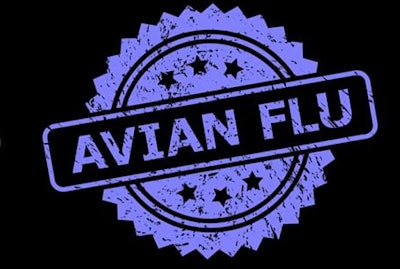
Even if vaccination for highly pathogenic avian influenza (HPAI) becomes more widely accepted in the global poultry industry, not all trade partners will immediately jump on board to accept imports from a country that vaccinates.
Because of that, one possible scenario for those that do vaccinate would be to follow the model used in no antibiotics ever (NAE) poultry production, Brian Umberson, Ancera strategic accounts manager, said on October 16 during the International Avian Influenza Summit in Fayetteville, Arkansas.
In such a model, a poultry integrator often has multiple flocks in different barns or different premises. At one facility, birds who are not treated with antibiotics are kept, while those that are treated are kept elsewhere.
The same principle could apply for companies in countries with an approved vaccination program.
Umberson said now that HPAI vaccination is becoming a reality in countries like France and the Netherlands, and it is looking more and more like it might be coming to South Africa, some countries, especially those in the European Union, might relax their rules concerning the import of poultry where HPAI vaccines have been used.
“We’ve said, ‘no, we can’t use vaccines’ for so long that it’s just shut off discussion about it,” said Umberson.
But more discussions are taking place, and ideas on how to handle production for certain markets need to be part of those discussions.
“We need to look at that and say we can develop an NAE-like model for vaccines, and certain complexes would use vaccines and certain complexes would be just for export,” Umberson said. “That would be something we could do as a crawl-walk-run scenario in the implementation, because you know that not everybody is just going to flip the switch and move right over to vaccines right away. There are going to be laggards in this.”
View our continuing coverage of the global avian influenza situation.



















